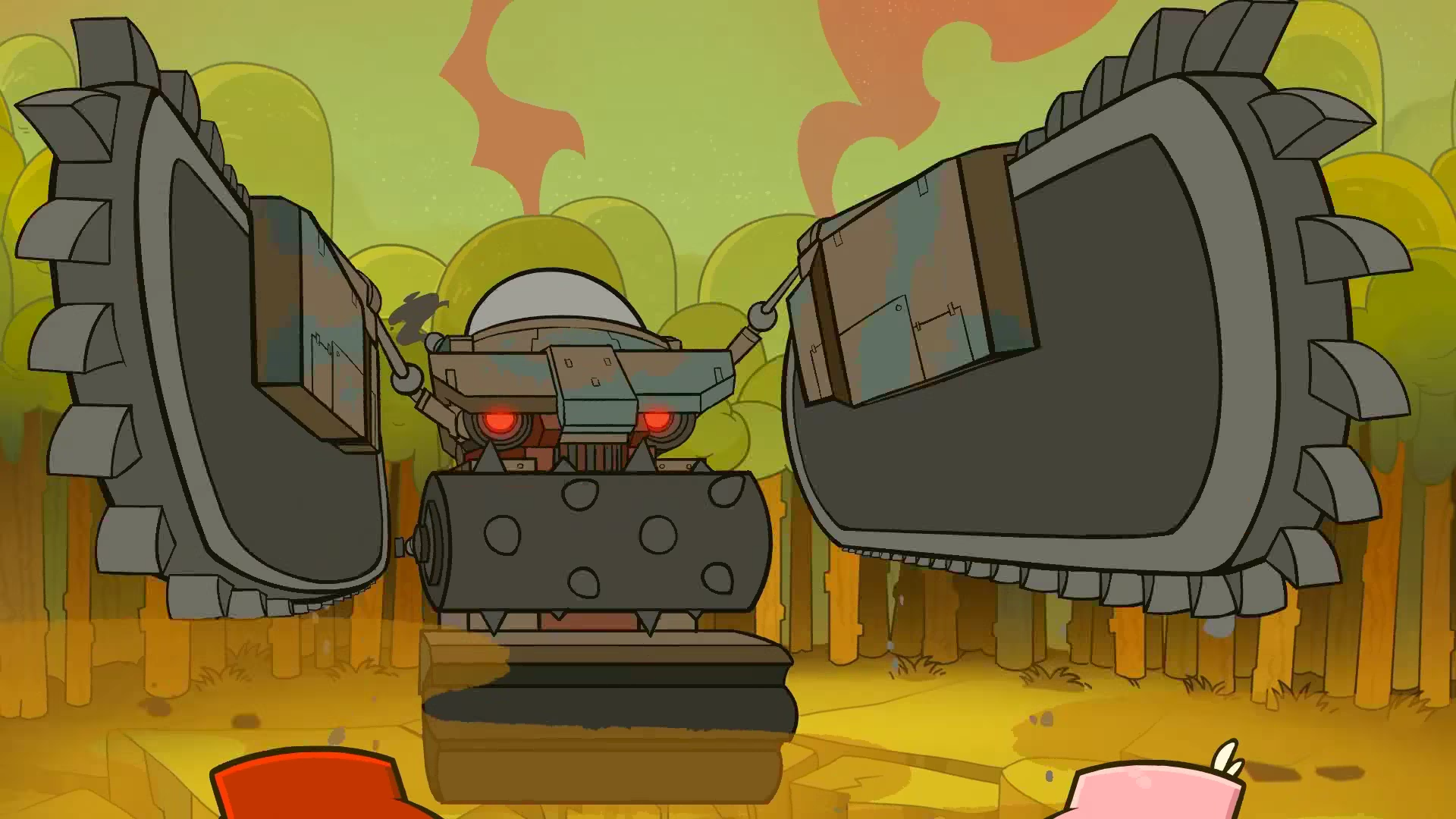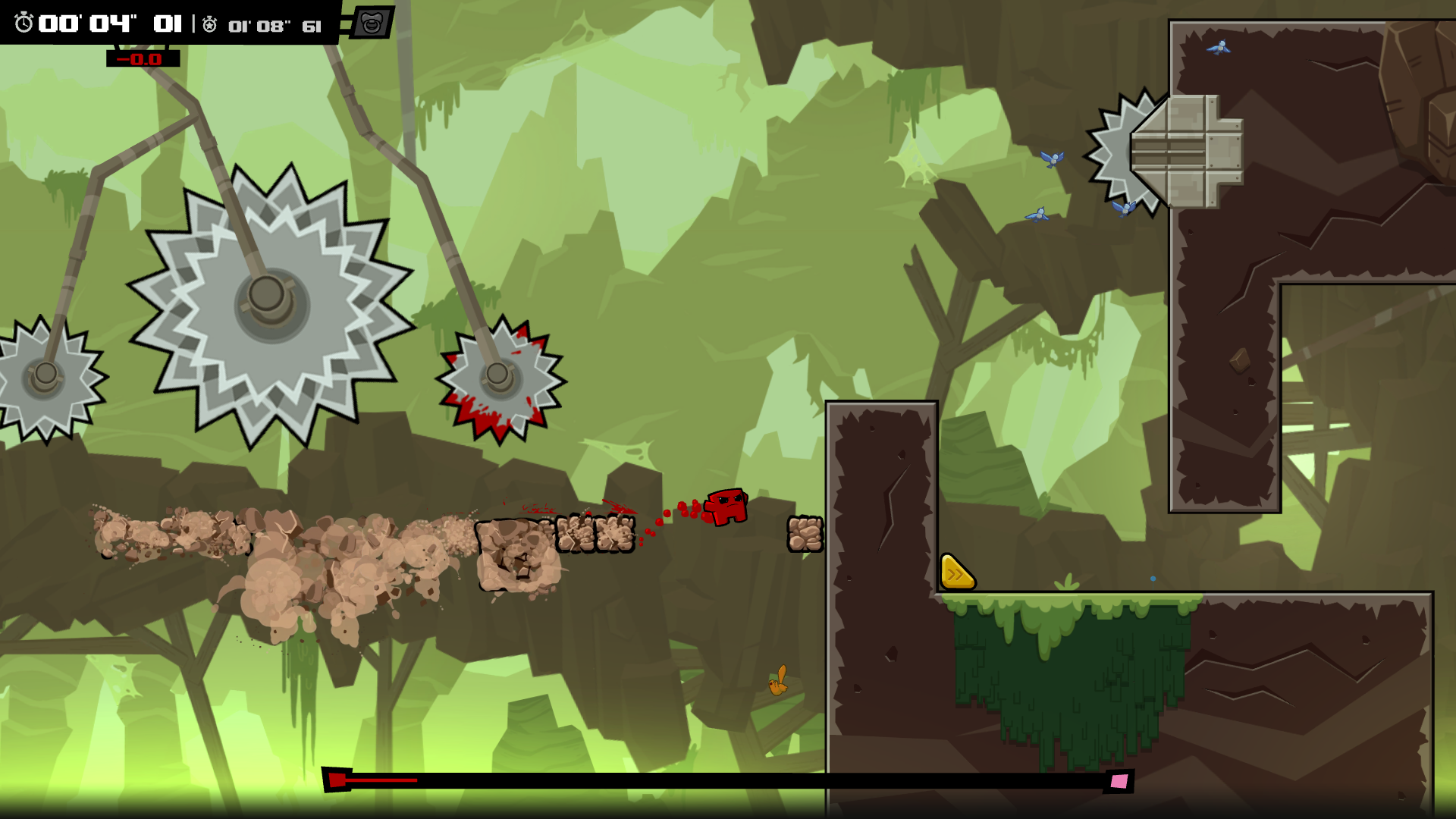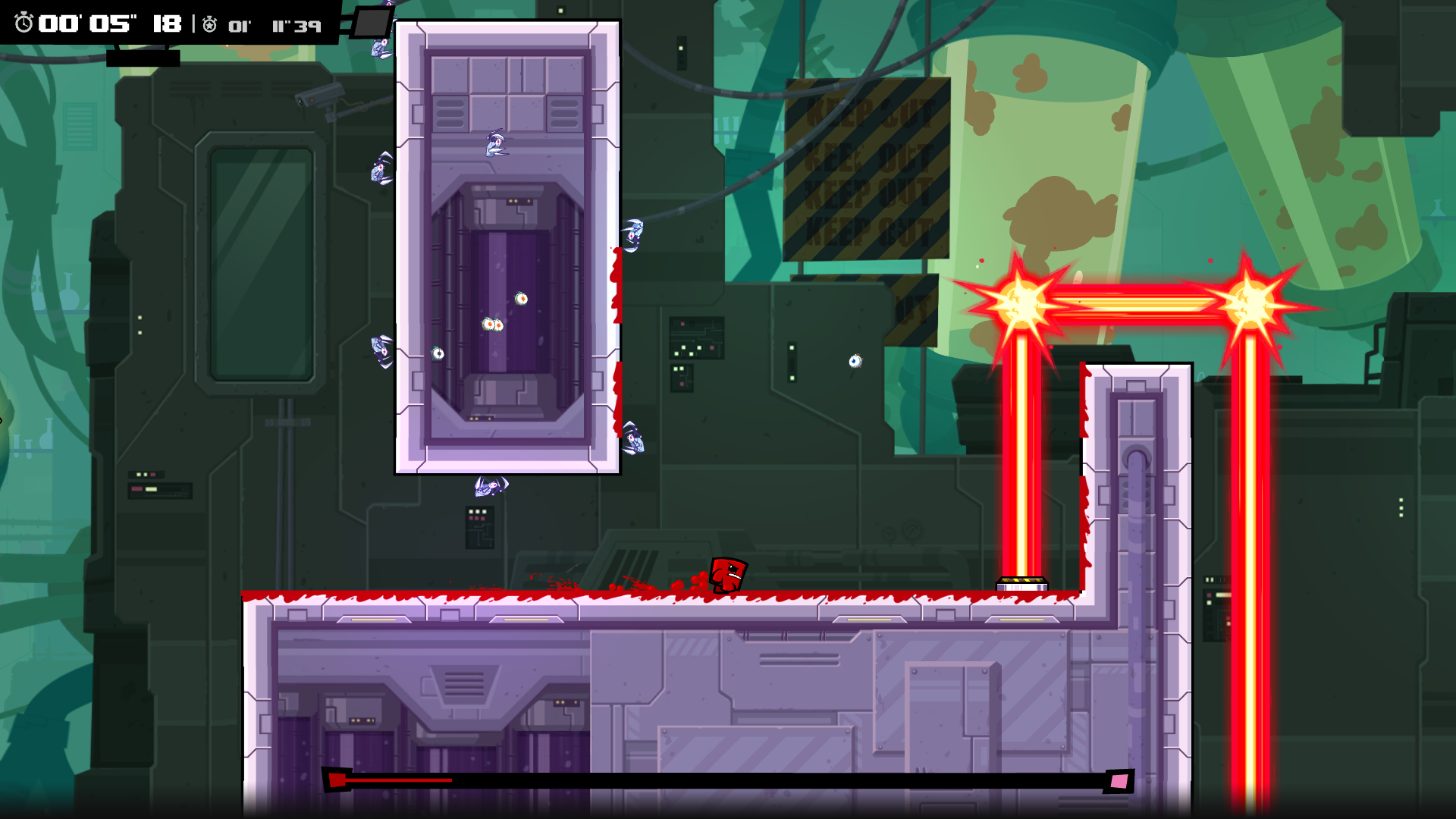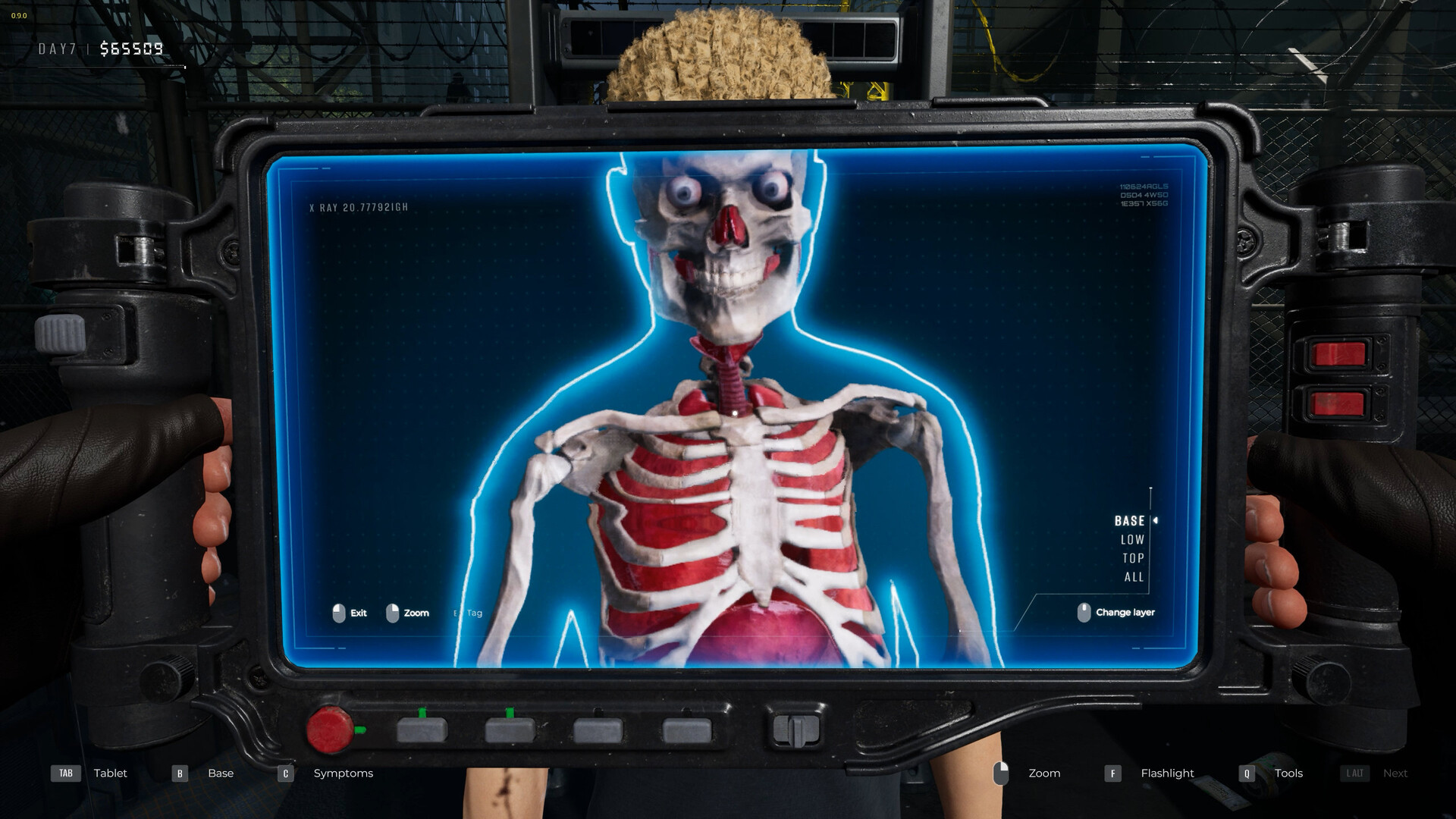Our Verdict
A bold genre shift, but not a completely successful one.
PC Gamer's got your back
What is it? An auto-running sequel from the Meat Dimension.
Expect to pay: $20
Developer: Team Meat
Publisher: Team Meat
Reviewed on: Windows 10, GeForce GTX 1070, Intel Core i7-9700 CPU, 16GB RAM
Multiplayer: No
Link: Official site
Team Meat deserves credit for boldness. The formula for a Super Meat Boy sequel has been on the table for the entire decade following the release of the original game. We fell in love with its ultra-precise jumps, gratuitous blood splatters, and grotesque Garbage Pail Kids aesthetic. The studio easily could've slapped together another junket of levels—with no significant iteration on the core obstacle dodging—and enjoyed a rousing reception from Meat Boy's abating community of diehards and speedrunners. Instead, Team Meat went the opposite route. Super Meat Boy Forever reminds me a lot of Super Mario Bros 2. The characters are all familiar, sure, but the design is a significant departure from what made the first one a classic. For better or worse.
Dr Fetus is back, once again disrupting the dulcet civilian union of Meat Boy and Bandage Girl. He's kidnapped their adorable, disgusting child, named Nugget, so they must negotiate an infernal gauntlet of steel buzzsaws, rusty syringes, and radiating laser beams to get him back. The only difference is that now, Super Meat Boy is an autorunner. From the moment you boot up the game, the protagonist will be locked in a dead sprint towards the right side of the screen. The traditional hairline twitches of the genre—pulling up on the joystick at just the right moment to avoid certain death, switching orientation in mid-air—have all been banished. Instead, Forever is a game primarily about timing. With limited authority over the way Meat Boy moves, you are left with a series of precise jumps and dodges to keep the cuddly blob alive as he carves through the Rube Goldberg death traps in front of him—like a parent doting over a precocious, highly elastic toddler.
This was a tough sell going in. One of the reasons people adore Super Meat Boy is for its airtight controls. Reforging that functionality, scaling back the precision, seemed like an odd choice at best and a disastrous one at worst. Fortunately, Forever is far from a calamity. A lot of the glee found in the original—the white-knuckle chaos of a platformer that moves so fast that you're forced to rely on your primal instincts rather than your deductive acumen—is replicated in the sequel. Those moments where everything clicks, and you finally pass through a helter-skelter trial unscathed, remain profoundly sublime. Team Meat has also generated enough wrinkles to keep the auto-running blueprint from growing too staid. One world introduces a belligerent purple beam of light that, when defeated, briefly infuses Meat Boy with the ability to blast through certain barriers. Elsewhere, I found tiles that, when passed through, turn solid, allowing me the chance to bounce backwards onto them as I was searching for higher ground.
But too often during my time with Forever, I yearned for Super Meat Boy's ancestral rulebook. Some of my best experiences in the first game happened when I sat perched on a dangerous precipice, staring out at all the cartoon blades and grinders before me, wondering how, exactly, I was I was supposed to clear all this anarchy in one piece. Suddenly, the path forward is illuminated: "Oh, I need to jump to that platform to avoid the chainsaws. Got it." And we're off to the races.
Forever does away with contemplation of any kind. It is all gas, no brakes, to the point where it wears on your senses. On certain levels, I became desperate for a shred of autonomy—please, let me at least change the direction that Meat Boy is running!—but Forever is unyielding in its principles. Want to go the other way? You best bounce off the wall at the far end of the screen.
Maybe that frustration would be alleviated if the controls still felt great, but I ran into a number of weird, slippery breakdowns throughout Forever. Meat Boy is equipped with this forward lunge that's used to dispatch enemies and cross distances, and I found that part of the arsenal to be relentlessly inconsistent. I ran into a boss that was particularly elusive of that attack, and as I learned, there is nothing more frustrating than sliding through a gigantic hitbox over and over again, adding a slight dash of defective wonkiness to a videogame that's already pretty difficult. On top of that, Forever is procedurally generated, stringing together obstacles in a random seed. This works more often than it doesn't, but there were certainly incidents where I simply had no idea where I was supposed to go or what I was supposed to do. The first game was challenging, but never unclear given a bit of observation. I found myself wanting more of an author's touch.
A lot of Team Meat's indelible charm is still present. The Meat Boy universe is at its best when it offers a demonic homage to the hellish 8-bit platformers of yore, and I stumbled into one of those famous, hidden "glitch zones" that transported me to a wonderful Mega Man send-up. (I stood against Dr. Fetus on a conveyor belt rolling towards certain death. He tossed absurdly fast projectiles at me that brought to mind the most harrowing of Mario Maker levels. It was supremely, absurdly hard.) Super Meat Boy Forever remains as vibrantly revolting as you remember the original being, but the platforming design doesn't live up to the established pedigree. The studio deserves credit for trying something different. If only Meat Boy's simple joys weren't diminished in the transition.
Keep up to date with the most important stories and the best deals, as picked by the PC Gamer team.
A bold genre shift, but not a completely successful one.

Luke Winkie is a freelance journalist and contributor to many publications, including PC Gamer, The New York Times, Gawker, Slate, and Mel Magazine. In between bouts of writing about Hearthstone, World of Warcraft and Twitch culture here on PC Gamer, Luke also publishes the newsletter On Posting. As a self-described "chronic poster," Luke has "spent hours deep-scrolling through surreptitious Likes tabs to uncover the root of intra-publication beef and broken down quote-tweet animosity like it’s Super Bowl tape." When he graduated from journalism school, he had no idea how bad it was going to get.




